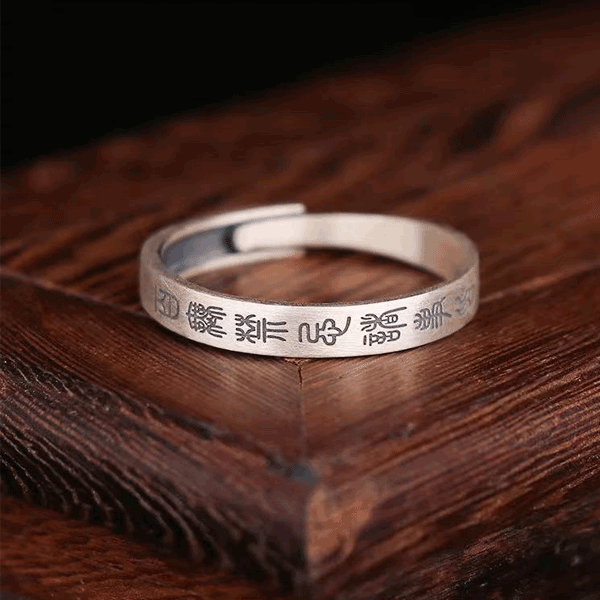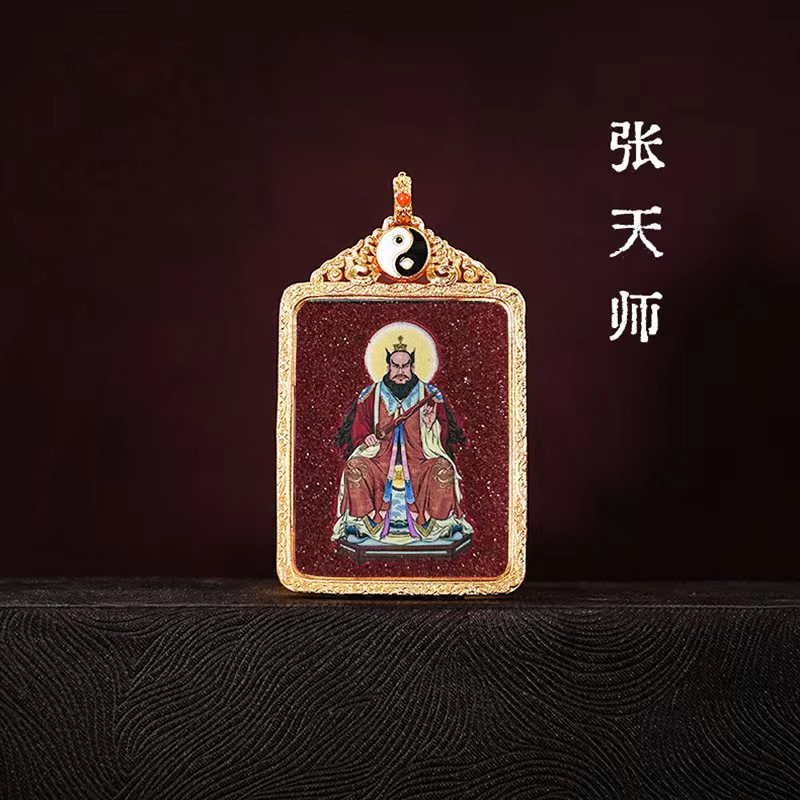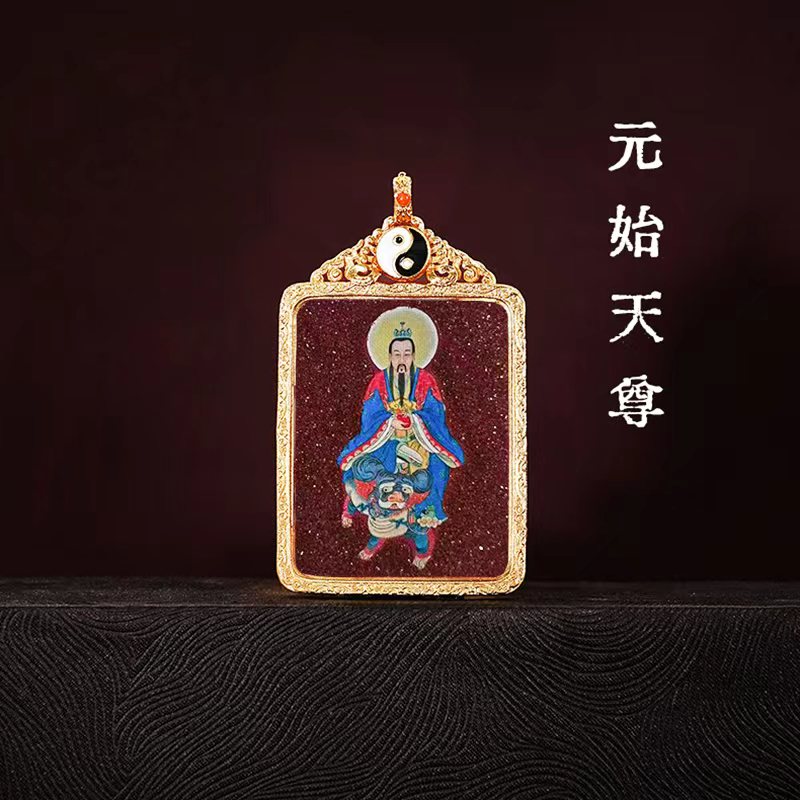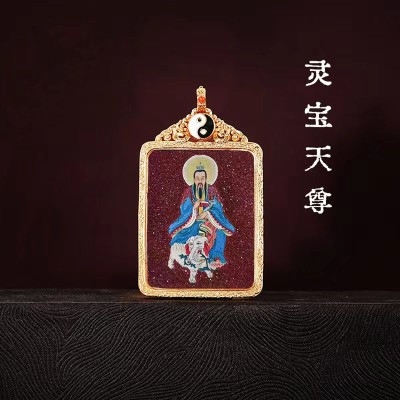Shangqing Lingbao Tianzun: The Progenitor of Taoist Scriptures and the Benevolent Father Who Saves the World from Disaster
Shangqing Lingbao Tianzun, also known as Lingbao Tianzun, is the second of the "Three Pure Ones," the highest deity in Taoism. He resides in the Shangqing Realm, the second level of the Three Pure Ones. He is another important incarnation of the Dao, symbolizing the transition from the chaotic origin (Yuanshi) to the orderly laws (Jingjiao). If Yuanshi Tianzun is the "Originator" of the universe, Lingbao Tianzun is its "Educator" and "Redeemer."
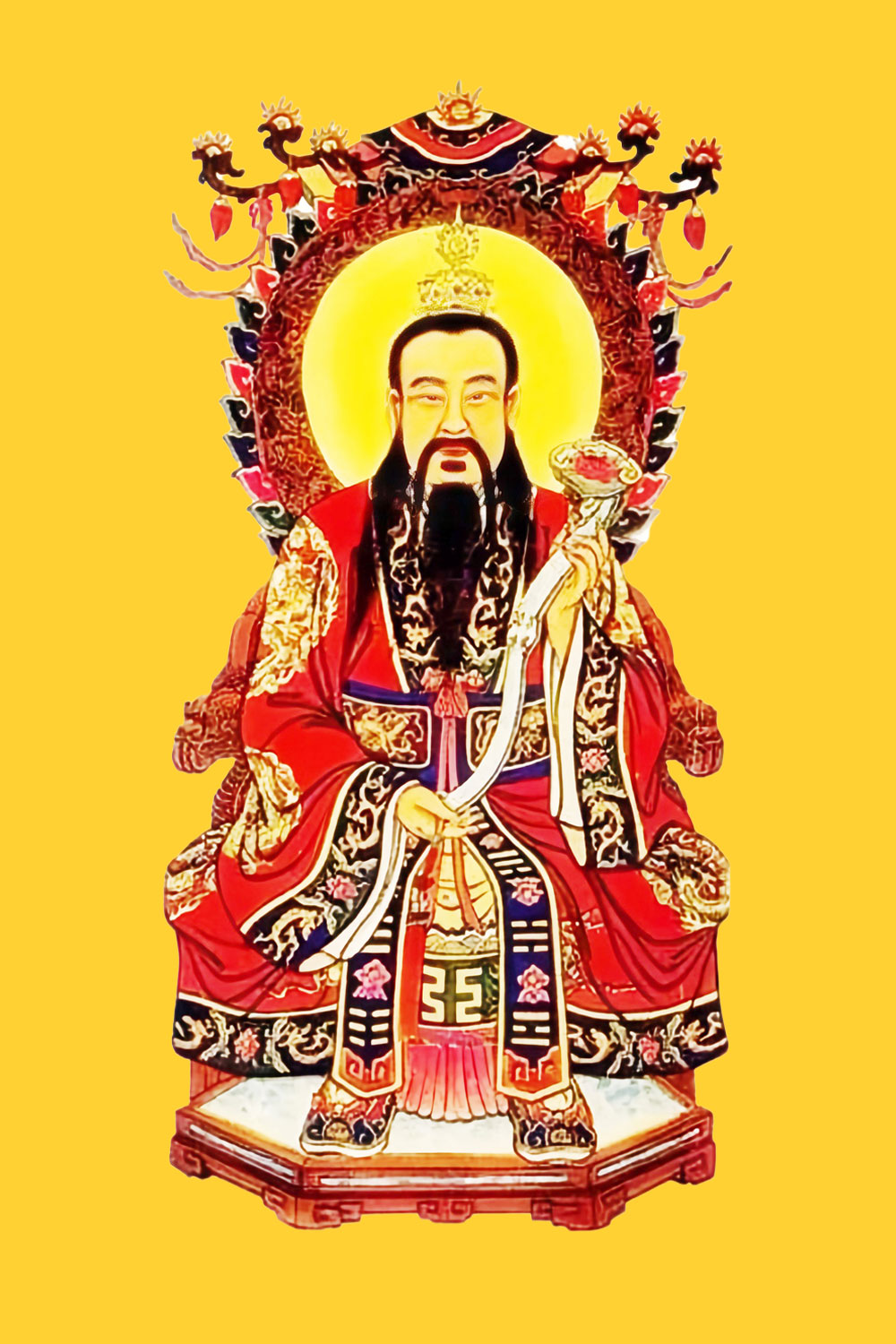
Shangqing Lingbao Tianzun
I. Identity and Status
Second in the Three Pure Ones: Among the Three Pure Ones, Lingbao Tianzun ranks after Yuqing Yuanshi Tianzun and before Taiqing Daode Tianzun. He is typically placed to the left of the Three Pure Ones (to the left of Yuanshi Tianzun).
The Evolution of the Dao: He represents the specific stages of the Dao's evolution after Yuanshi Tianzun created the universe, namely, the process of giving rise to all things from nothingness. He symbolizes "Hong Yuan," the period when heaven and earth were formed and their laws were initially established.
Source of Scriptures and Teachings: Lingbao Tianzun's most important identity is as the founder and disseminator of Taoist scriptures and teachings. Countless Taoist classics, especially the fundamental texts of the Lingbao School, are believed to originate from him.
2. Names and Symbolic Meanings
Shangqing: Refers to the sacred realm where he resides, a higher celestial realm second only to the Jade Purity Realm, representing a realm of subtlety and wisdom.
Lingbao: This is the core of his name.
- "Ling" refers to the mysterious, miraculous, and powerful.
- "Bao" refers to precious, rare, and fundamental laws and methods.
- "Lingbao" collectively means "the mysterious and fundamental Dharma" or "the compendium of all magic, scriptures, and principles for saving people." He symbolizes "existence," the establishment of universal law.
Tianzun: Like Yuanshi Tianzun, this is a title for the Supreme Deity.
Image Symbolism:
In Taoist statues, Lingbao Tianzun often holds a Tai Chi diagram or a jade Ruyi, or sometimes a sword.
Tai Chi diagram: symbolizes the separation of yin and yang and the clarity of the universal laws (Tao).
Ruyi: symbolizes his will, his miraculous powers, and his profound wisdom.
Sword: symbolizes the severing of afflictions, the destruction of evil, the revelation of righteousness, and the protection of the righteous path.
His image is often depicted as wise and majestic, reflecting his role as a law-giver and educator.
III. Core Duties and Functions
Lingbao Tianzun's duties focus on concretizing and systematizing the "Tao" represented by Yuanshi Tianzun, and applying it to the salvation of sentient beings.
1. Transmitting scriptures and oracles, establishing the Taoist canon system
This is Lingbao Tianzun's most core duty. He is responsible for transforming the profound "Tao" into texts and rituals that can be studied, recited, and practiced.
Linking the past and the future: According to classics such as the "Lingbao Infinitely Saving People's Supreme Grade Wonderful Sutra," Lingbao Tianzun received and kept the "Lingbao Red Book True Text" (the prototype of the Lingbao Sutra) from Yuanshi Tianzun at the end of the Yankang calamity (the end of a cosmic cycle). He then passed these true texts on to the celestial immortals in the first year of the Chiming era (the beginning of a new era), allowing them to spread throughout the world.
Founder of the Lingbao School: The Lingbao School, centered around the "Save People Sutra," reveres Lingbao Tianzun as its founder. The school places particular emphasis on rituals of fasting and offering sacrifices, chanting sutras, and saving all sentient beings, emphasizing the universal salvation of all sentient beings (including the spirits of the ten directions). These ideas and rituals are directly derived from Lingbao Tianzun.
2. Saving the calamity and saving people, and benefiting all living beings
Lingbao Tianzun possesses immense compassion, and his name itself is closely linked to "universal salvation."
The Speaker of the "Duren Jing": Although the text was preached by Yuanshi Tianzun, Lingbao Tianzun was the key promoter and inheritor of this method of salvation. The core tenet of the "Duren Jing," "The Immortal Path values life and infinitely saves all," perfectly embodies Lingbao Tianzun's deity. He focuses not only on individual cultivation and attaining immortality, but also on the liberation and transcendence of all life.
Saving the Dead: During large-scale Taoist fasting and offering ceremonies (such as the Huanglu Fast and the Water and Fire Refining Ceremony), the presiding priest often meditates and prays for Lingbao Tianzun to descend, illuminating the netherworld with divine power and liberating the souls of the deceased, freeing them from suffering. He is a key deity connecting life and death, heaven and earth.
3. Evolving Yin and Yang and Regulating the Five Elements
As the embodiment of cosmic law, Lingbao Tianzun is responsible for regulating the yin and yang energies and the five elements between heaven and earth, ensuring the normal operation of the world.
In some Taoist scriptures, the Tai Chi diagram he holds represents his authority over the regulation of yin and yang.
He ensures the stability of natural laws, providing the basic environmental conditions for the survival and cultivation of all living beings.
4. He oversees talismans and spells, and bestows supernatural powers.
The word "Lingbao" itself implies magic and supernatural powers. Therefore, Lingbao Tianzun is considered the source of Taoist magic, such as talismans and spells.
The divine power invoked by Taoists when writing talismans and chanting spells is largely believed to originate from Lingbao Tianzun's authorization.
He bestows wisdom and magical powers upon sincere believers, helping them to exorcise evil spirits and benefit the world.
IV. Relationship with Yuanshi Tianzun and Taishang Laojun
To better understand Lingbao Tianzun, we can place him within the dynamic relationship of the "Three Pure Ones":
Yuanshi Tianzun (Originator): He is the "substance," the origin, and the starting point of inaction. He initiates an era, but generally does not directly intervene in specific matters.
Lingbao Tianzun (Teacher): He is the "appearance," the law, and the bridge connecting the origin and the world. He transformed the fundamental "Tao" into practical scriptures and rituals, actively saving sentient beings.
Taishang Laojun (teaching/demonstration): This is "application," "responsibility," and the most direct manifestation of the "Tao" in the human world (like Laozi). He more specifically taught worldly principles such as alchemy, self-cultivation, and governance.
A simple analogy: If the Tao is a magnificent library, then:
- Yuanshi Tianzun is the original founder who established the library and holds all intellectual property rights.
- Lingbao Tianzun is the director who compiled knowledge into specific books (scriptures), established borrowing rules (rituals), and actively promoted reading to the public (saving people).
- Taishang Laojun is the chief professor who personally teaches, gives lectures, and writes introductory guides (such as the "Tao Te Ching").
Summary:
Shangqing Lingbao Tianzun plays the role of "ancestor of scripture" and "god of salvation" in Taoism. He transforms the supreme Dao into tangible compassion and wisdom, educating and redeeming all living beings through scriptures, rituals, and magic. For Taoists, chanting the name of Lingbao Tianzun or practicing the Lingbao scriptures is not only for personal cultivation, but also for participating in his great vow to save all beings.

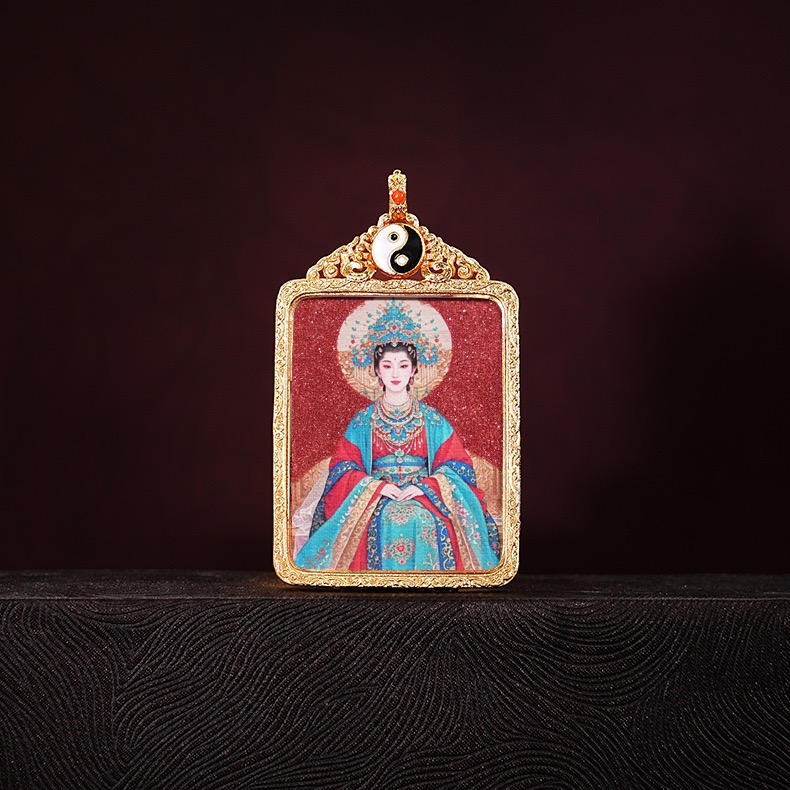
.webp)
